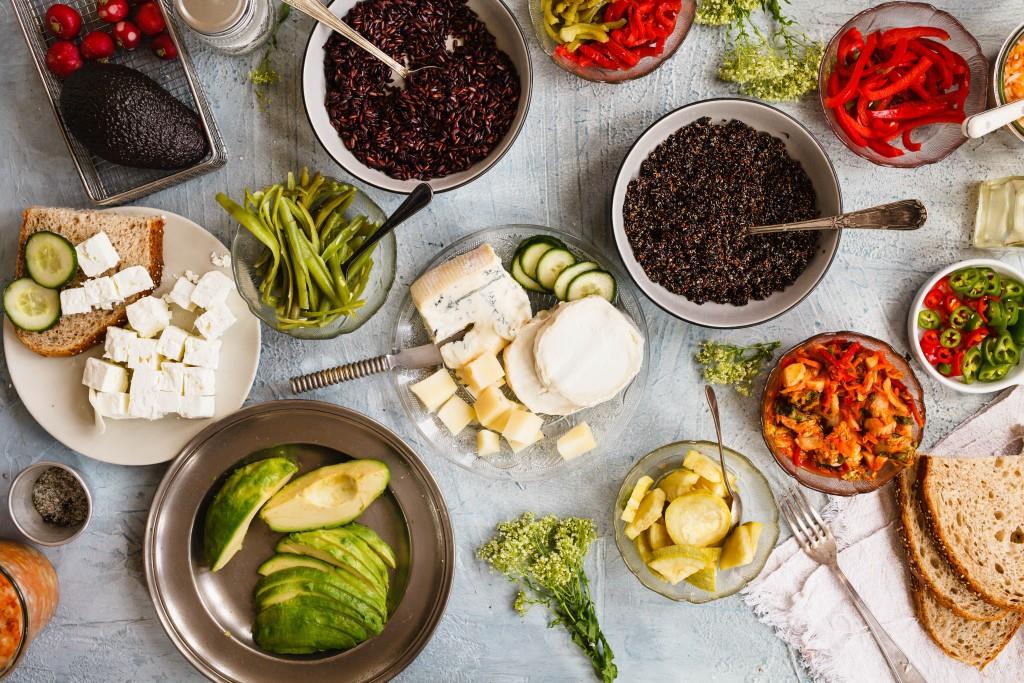Plant Based Diet Benefits: A Quick Guide
Humans have always eaten meat. Yet, modern science seems to indicate we’d be better off avoiding animal proteins altogether, or at least, eating a lot less of them. Why? We’ve evolved, and so have our food production methods. Today, we can get everything we need from a plant-based diet, which is reportedly better for our health, our planet, and the animals who might otherwise be destined for our dinner plates. The more we learn about plant-based diet benefits, the more inclined we are to give the green stuff a try. Although the percentage of people in the United States who identify as vegetarians remains fairly low -- at around 5 percent -- a 2019 Gallup poll reveals that nearly a quarter of Americans report eating less meat than they have in previous years.
What is a Plant-Based Diet?
Plant-based diets are made up primarily of vegetables, fruits, whole grains, healthy oils, nuts, and seeds. However, devotees of this increasingly popular dietary trend come in a variety of shapes and sizes. Vegans eschew animal products completely (see some stats on vegans). Vegetarians say “no” to meat, poultry, and fish but “maybe” to eggs and dairy. And flexitarians or semi-vegetarians simply opt to eat less meat, poultry, and fish.
The bottom line is you don’t have to forgo animal proteins entirely to tap into a wide array of plant-based diet benefits. You simply have to tilt the scale in favor of wholesome, plant-sourced foods – the fresher and more colorful, the better.
Improved Health Tops List of Plant-Based Diet Benefits
If you worry about heart disease, diabetes, obesity, cancer, hypertension or other life-shortening chronic illnesses, the answer might be as close as your backyard garden, local farmer’s market, or the produce section of your favorite grocery store.
A nutritious, plant-based diet can provide all the protein, healthy fats, carbohydrates, vitamins, and minerals your body needs, without exposing you to the unhealthy saturated fats and artery-clogging cholesterol found in processed foods. Additionally, many fresh, organically grown, plant-based foods are low in calories and high in fiber and antioxidants that can aid digestion and help protect against cancer. In fact, according to Medical News Today, data from a Tufts University study shows that diets composed largely of quality plant-based foods are associated with a 30 percent lower mortality rate than those involving less healthy choices. What’s more, eating right is frequently linked to other good habits, such as routinely carving out enough time for sleep, exercise, and relaxation.
3 Easy Ways to Incorporate More Plant-Based Foods into Your Daily Diet
- Start small. Introduce changes to your diet gradually. For example, once a day, challenge yourself to fill at least half your plate with plant-based foods. Or set aside one night a week to try a new vegetarian meal. (Buddha bowls are a fun option because everyone can build their own.) Smart eaters also recommend snacking on raw veggies and hummus, altering recipes to use less meat, and choosing fresh fruits or berries over high fat, sugary treats. Developing healthy habits is not as hard as it sounds. It just takes a little time and imagination.
- Make good choices. Simply eating less meat is not enough to reap the full spectrum of plant-based diet benefits. Staying within recommended daily caloric allowances and getting your required daily nutrients are also prerequisites to success. To do this, avoid processed foods loaded with unhealthy fats, added sugars, and salt. Instead, fill up on whole grains (brown rice, oatmeal), healthy fats (olive oil, avocados, nuts), plant-based proteins (legumes, black beans, quinoa, tofu), and fresh, colorful fruits and vegetables.
- Don’t be afraid to try something new. Experiment with soy products, such as tofu and tempeh, to add protein and a meaty texture to your favorite recipes. Or, top off a grilled veggie burger with a mix of tangy kimchi or fermented sauerkraut. Loaded with probiotics, these naturally preserved veggies are great for gut health and offer a welcome break from your typical steamed, sautéed, or boiled sides. Also worth trying are the many nutritious plant-based milks, butters, and cashew-based cheeses readily available in the refrigerated section of your supermarket. Most are lower in fat and easier to digest than traditional dairy picks, and they’re so creamy and delicious, you’ll think you’re eating the real deal.
Be aware that consuming fewer animal-based foods might mean you have to rely on supplements or fortified foods (cereals, orange juice, or plant-based milks) for certain vitamins and minerals, such as vitamin B-12, vitamin D, and calcium. These are found primarily in meat, fish, and dairy products and are necessary for blood, neurological, skeletal, muscular, and immune system health.
The decision to eat or not eat meat is riddled with serious economic, ethical, and health tradeoffs. However, you don’t have to be all in or all out to make a difference. If you’re not ready to jump on the vegetarian or vegan bandwagon, you can still nudge your diet in a healthier direction simply by eating a little less meat and a few more veggies. In other words, embrace your inner flexitarian!
Meatless Mondays are a great way to start (yep, that’s really a thing). A quick Google search will turn up more yummy-looking, plant-based recipes than you could try in a year’s worth of Mondays. Our top two picks are a hearty Sauerkraut Wellness Bowl and Spicy Kimchi Noodles. Both are so tasty, nutritious, and easy to make, you’ll wonder why you didn’t decide to green up your diet ages ago.
